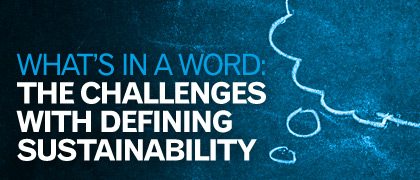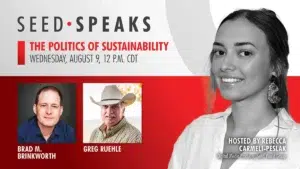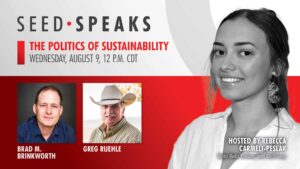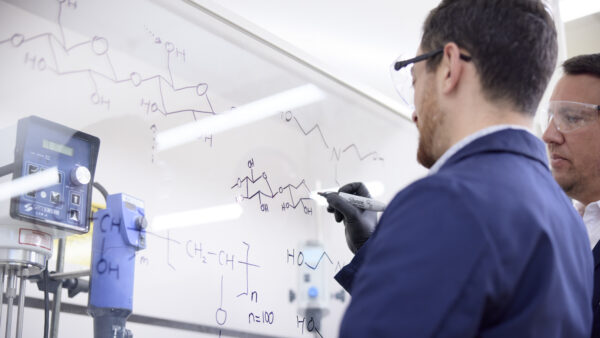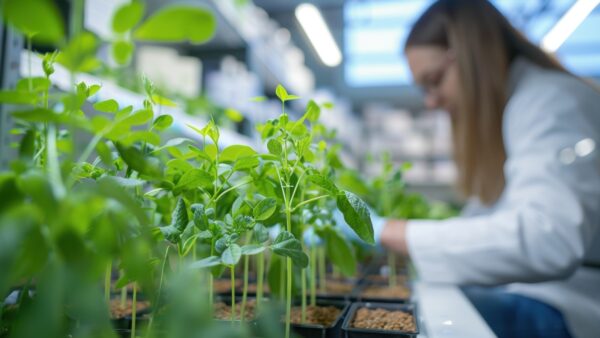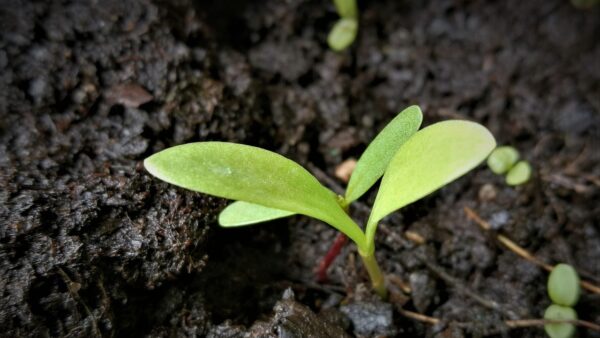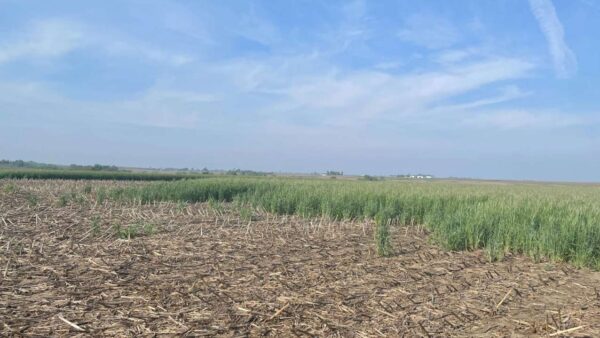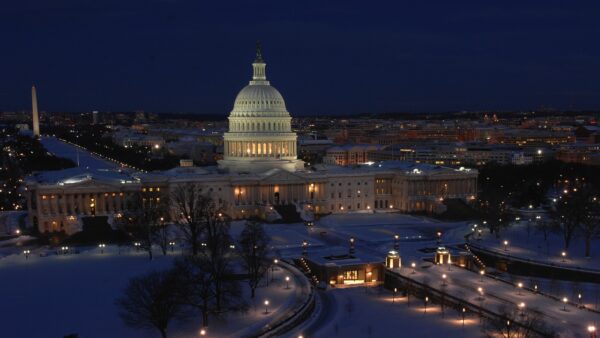For every industry, corporation, organization or individual considering the concept, there are as many interpretations of what it means to be sustainable—and therein lies the challenge.
In terms of ag industry buzzwords, the “S” word is a big one. And for every forum and venue addressing sustainability, there are as many definitions and meanings attached to the word as people attending them.
“Defining sustainability is like defining beauty—it’s in the eye of the beholder,” says Greg Ruehle, CEO of the Independent Professional Seed Association. “To me, it’s such a nebulous topic that if you try to define a single set of terms that fit all of agriculture, we’ll be having the same conversation a decade or more from now.”
Although definitions for sustainability may be ambiguous, U.S. seed companies are already working within sustainable systems, Ruehle says, even if they are not labeling them as such. “These are multigenerational businesses and they would not be such but for sustainable operations that are defined through profitability, through sound resource management and through sound conservation practices. Clearly these companies successfully demonstrate sustainability through their multigenerational existence,” says Ruehle.
| According to the United Nation’s Food and Agriculture Organization, sustainable agricultural development is the “management and conservation of the natural resource base, and the orientation of technological and institutional change in such a manner as to ensure the attainment and continued satisfaction of human needs for present and future generations. Such sustainable development (in the agriculture, forestry and fisheries sectors) conserves land, water, plant and animal genetic resources, is environmentally non-degrading, technically appropriate, economically viable and socially acceptable.” |
“I think sustainability is demonstrated every day by seed companies all across the country—they probably don’t think about it as sustainable, but clearly these actions would be part of any reasonable definition of sustainability.”
Andy LaVigne, president and CEO of the American Seed Trade Association, concurs. “Sustainability is being able to economically operate your farm on an annual basis and continue to improve your yield and the quality of your operation. If you’re passing a farm down generation after generation … that’s sustainable,” he says. “It doesn’t matter what practices you use, whether they’re organic or conventional, biotech or a combination, it’s how you manage your operation—I think that’s how any business is.”
LaVigne maintains seed companies are being evaluated on their sustainability quotient every year. “Our customers … tell us on an annual basis whether the product we have meets their demands. That’s a way for us to measure our sustainability.”
In fact, according to LaVigne, the seed industry continues to push sustainable development forward in many ways. “Sustainability is part of what we do in our overall research and breeding process to improve yield and [to grow] stronger plants to better withstand pests and disease and weather issues. Everything we do in that process is to improve the sustainability of the industry.”
| The United States Department of Agriculture’s National Institute of Food and Agriculture’s legal definition of sustainability is, “an integrated system of plant and animal production practices having a site-specific application that will over the long term satisfy human food and fiber needs; enhance environmental quality and the natural resource base upon which the agriculture economy depends; make the most efficient use of nonrenewable resources and on-farm resources and integrate, where appropriate, natural biological cycles and controls; sustain the economic viability of farm operations; and enhance the quality of life for farmers and society as a whole.” |
One example is Latham Hi-Tech Seeds, which integrates improved genetics and technology in its product pipeline with an eye to sustainable development. “At Latham Hi-Tech Seeds we follow basic ground rules: combine the industry’s best genetics with the latest trait technologies to produce products that excel in local growing conditions. It is our hope that by doing this we can have not only a positive impact on the farmer’s long-term success, but on the environment and societies we serve,” says Shannon Latham, the company’s vice president.
However, practicing sustainability may not be enough going forward—where the industry must focus its attention is on showcasing these existing practices. “I think agriculture has struggled with promoting its own image or tooting its own horn. Some would say agriculture suffers from a case of laryngitis when it comes to promoting its work in the area of sustainability. I think demonstrating agriculture’s collective successes is something we can all agree with,” says Ruehle.
“We probably aren’t doing a good enough job connecting the dots so that both seed companies and consumer activists can see the role seed companies have played in promoting and enhancing sustainability in agriculture for the future.”
For example, the seed industry has embraced many technologies that support proper systems to discard treated seed. “Nobody thinks about sharing with a consumer what they do with regard to discarded [treated] seed, but that is an example of sustainability—making sure [seed industry stakeholders] understand it’s important that a broader group of people understand the practices they undertake every day have a positive long-term impact on consumers and on U.S. and world agriculture,” says Ruehle.
| “Our business model is to save people money so they can live better. Sustainability is a key business driver of that concept—saving money so that people can live better. When we look after sustainability, and we’ve done this across our business, in our operations and in our supply chain, we have found that it helps us find opportunities for efficiency, it better manages our risk and creates better partnerships and relationships with key business partners,” said Rob Kaplan, senior manager of sustainability for Wal-Mart Stores Inc., when asked to define sustainability at Bayer CropScience’s 8th Annual Ag Issues Forum last February. |
He stresses that sharing seed’s sustainability story must be a coordinated industry effort. “Groups like IPSA, ASTA and state and regional seed associations can have a real profound role in helping pull that information together and develop it as a unified seed industry response to sustainability. The more that we can do through a coordinated effort the better off we’ll be as an industry moving forward.”
Latham also emphasizes the importance of working together. “We need to produce more food while using natural resources more efficiently to help conserve and protect the environment. No industry or company can meet these challenges alone, so it’s important we all work together and leave a better environment for future generations,” she says.
One important first step for any coordinated effort may be defining sustainability for the sector before other groups or entities interpret sustainability in a way that is not supportable by the seed industry.
“The seed industry needs to step up and define this,” says Ruehle. “Agriculture has to have an answer to critics or activists, whomever they are, that we’re comfortable with, rather than allowing that definition to be pushed back through the system. … If we don’t take an aggressive role as an industry and begin to define sustainability on our terms, somebody is going to try and define it for us—and I don’t think we’ll like their answer.”
A number of large corporations, such as Wal-Mart Stores Inc. and Unilever PLC, are incorporating sustainability as a key business driver. According to the Sustainability Assessment of Food and Agriculture Systems’ factsheet SAFA for Sustainability Assessment, “Markets for sustainable products are growing at rates far beyond the growth of markets for conventional products.”
Seed industry leaders Andy LaVigne, Shannon Latham and Greg Ruehle say seed companies today are already working within sustainable systems.
However, having entities outside of the industry define sustainability measures for the sector is problematic. “Certain efforts to define sustainability are doing so at the request or by the demand of groups who don’t have a working knowledge of agriculture. It’s a small group of activists trying to change corporate culture by forcing them into a model for sustainability that frankly is not very sustainable,” says Ruehle.
Rather than working with a definition of sustainability drafted for all of agriculture, Ruehle suggests sector-specific definitions may be most beneficial to the ag industry. “When you look at agriculture in general from one farm to the next, from one type of business to the next, from one segment of agriculture to another, we see tremendous diversity that suggests defining sustainability at a micro level, rather than at a macro level, would be more likely to succeed. Maybe the seed industry needs to be begin to define sustainability among our group and bring that to the table—the same for the livestock industry, the same for grain growers, [et cetera].
“It’s incumbent upon us to get busy defining sustainability on our terms and helping the larger corporations like Unilever and Wal-Mart understand that actions in place today are proven to be sustainable and serve society in a positive way—rather than waiting for a definition to be forced upon the industry that is not workable.”
Another challenge may present itself when trying to meet the future demands of differing sustainability requirements along the value chain. “If each company has a different strategy, then it makes it very difficult for those suppliers as they go along,” says LaVigne.
In addition, LaVigne cautions that trying to define sustainability could also place restrictions on the industry. “As soon as you start to define it, you put limits on what’s sustainable and what’s not. It’s very difficult to really look at the rapidly-evolving technologies, and the things we’re seeing in the seed industry today, within those parameters that change almost on an annual basis for us. What we do all the time is to improve sustainability in the seed industry as well as in the overall agricultural community. So working to define it would probably limit it more than open up opportunities.”
One thing is clear: due to the growing importance of seed in production, developing and coordinating a definitive message about sustainability in the seed industry is imperative.
“As a seed industry we have to be cognizant of the growing role that the seed itself plays in agricultural production. … Today seed delivers the genetics and the biotech traits, it delivers seed treatments and it delivers seed growth promotants. Seed is responsible for more elements of the agronomic production than ever before, so we’ve got a bigger role as an industry than we’ve had in the past,” says Ruehle.
“That being said, we need to become more proactive, and we have a great story to tell—we just aren’t braggadocious about it. We don’t blow our own horn—it’s just not how folks in agriculture are raised. They’re humble, hardworking and they expect the same of others. Fortunately or unfortunately, the world is changing and we have to deliver our message differently than we have in the past.”
Kari Belanger


